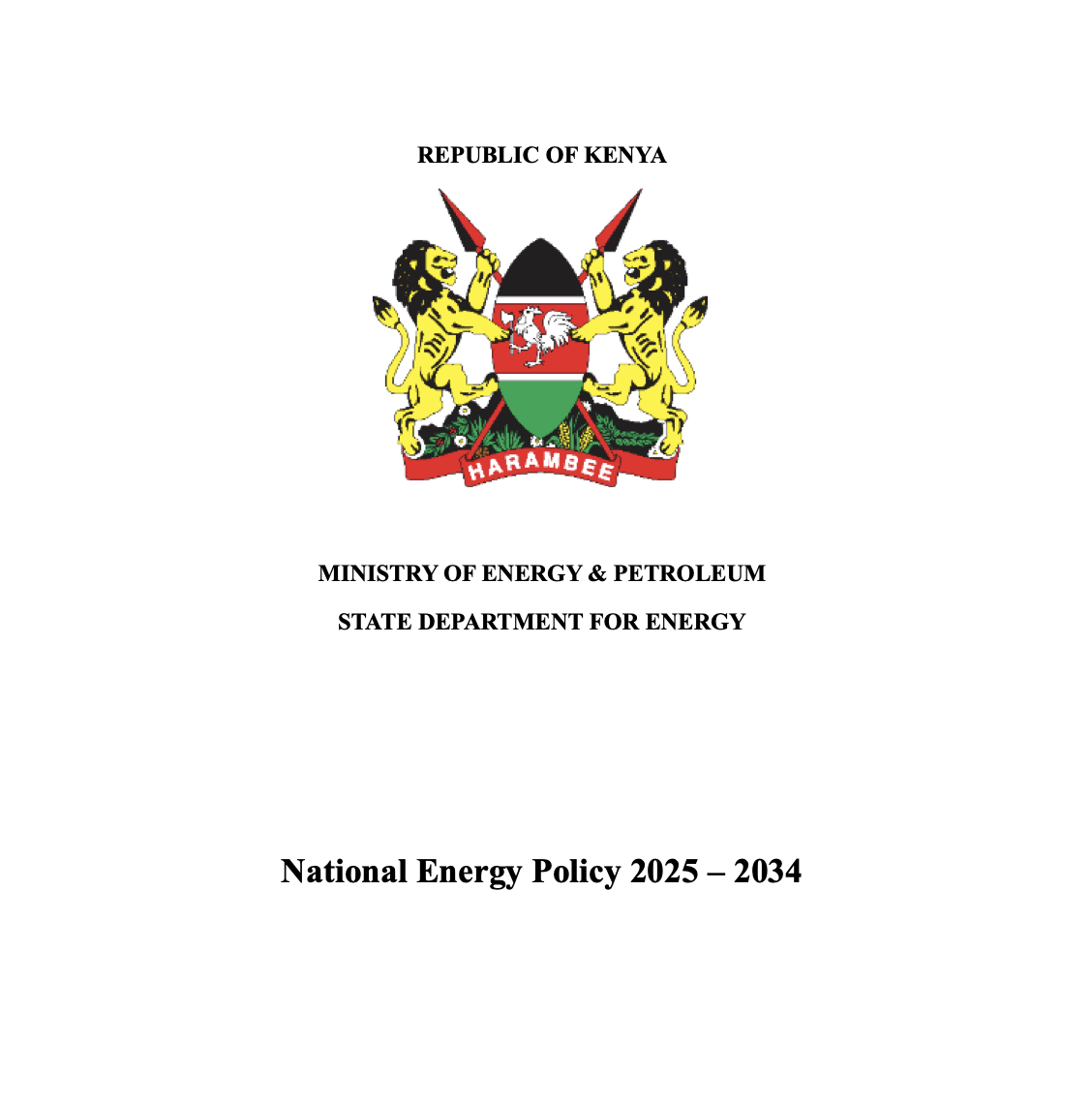National Energy Policy 2025 – 2034
Prepared By Ministry of Energy & Petroleum- State Department for Energy - 2025The National Energy Policy 2025–2034 sets out Kenya’s vision and strategic direction for the energy sector over the next decade, positioning energy as a key driver of socio-economic development, industrial growth, and environmental sustainability. The policy addresses critical challenges such as limited energy access—particularly in rural areas where over 25% of the population remain off-grid—high energy costs, and dependence on fossil fuels. It outlines bold strategies to expand electricity access through grid extension and off-grid renewable solutions, targeting universal electricity and clean cooking access by 2030.
The policy emphasizes harnessing Kenya’s abundant renewable energy resources, including geothermal, solar, wind, and bioenergy, to diversify the energy mix and reduce carbon emissions in line with Kenya’s commitments under the Paris Agreement. It promotes innovation, resilience, and sustainability by encouraging public-private partnerships, green financing, and adoption of emerging technologies like smart grids and artificial intelligence. The policy also prioritizes a just energy transition to ensure equitable benefits across all communities, especially marginalized groups, while fostering green industrialization to support economic growth and job creation. Overall, it provides a comprehensive roadmap to transform Kenya’s energy sector into a sustainable, inclusive, and climate-resilient system that underpins national development goals and the Sustainable Development Goals (SDGs).
The policy emphasizes harnessing Kenya’s abundant renewable energy resources, including geothermal, solar, wind, and bioenergy, to diversify the energy mix and reduce carbon emissions in line with Kenya’s commitments under the Paris Agreement. It promotes innovation, resilience, and sustainability by encouraging public-private partnerships, green financing, and adoption of emerging technologies like smart grids and artificial intelligence. The policy also prioritizes a just energy transition to ensure equitable benefits across all communities, especially marginalized groups, while fostering green industrialization to support economic growth and job creation. Overall, it provides a comprehensive roadmap to transform Kenya’s energy sector into a sustainable, inclusive, and climate-resilient system that underpins national development goals and the Sustainable Development Goals (SDGs).
Document





